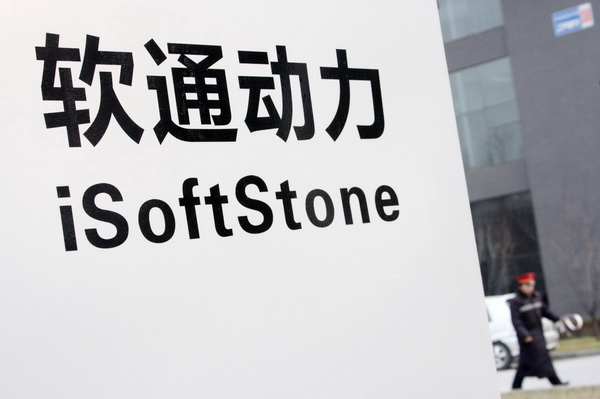


By Shen Jianyuan (沈建缘)
Issue 626, July 1, 2013
Corporation, page 25-26
Translated by Tian Shaohui
Original article: [Chinese]
On June 6, 2013 services firm iSoftStone (软通动力) announced it was delisting, the company is the last of the nine Chinese service outsourcing enterprises that listed in the U.S. over recent years to withdraw from the stock market.
Prior to iSoftStone, Pactera Technology International Ltd. (文思海辉), the largest of China's service outsourcing companies, was taken private through a management buyout, with acquisition of the remaining stock by private equity firm Blackstone Group in May 2013.
Beijing-based Pactera, formed last year through a merger of HiSoft Technology International Ltd (海辉软件国际和) and VanceInfo Technologies Inc (文思信息技术公司), specialises in offering technology outsourcing and consulting services to blue-chip companies around the world.
In the three years following VanceInfo's listing in 2007, eight other Chinese service outsourcing enterprises listed on the New York Stock Exchange, greatly increasing the industry's access to the global market. However, in 2011 the compound annual growth rate (CAGR) of Chinese companies in this industry plummeted to 5 percent from 62.1 percent in 2008. In 2012, the value of the contracts signed by Chinese outsourcing firms with international firms declined. In the period from 2011 to 2012, VanceInfo didn't add one major international firm to their list of clients. Despite efforts to rein in costs, the industry saw profit margins fall from the 20 to 25 percent range to 5 to 10 percent.
The industry was also hit by a scandal involving financial accounting fraud at Longtop Financial Technologies Limited (东南融通) that led to the company being forced off the U.S. stock exchange.
Causes of Stalled Growth
Qu Lingnian (曲龄年), the chairman of the Beijing Association of Sourcing Service (北京服务外包企业协会) says that one of the causes of the troubles facing the sector has been a precipitous drop in profit margins, but he also notes that the industries inability to quickly adapt to the financial crisis and huge changes in global IT production have also plyed a major role. Qu says that the industry has now entered a period of transition and that "currently, China's service outsourcing industry has entered its most difficult period and that it needs to take a new route."
Qu Lingnian also argues that there are three causes for this drop in profitability.
Firstly, China's service outsourcing enterprises have focused exclusively on expanding the scale of their operations at the expense of ignoring the need to lift the average income of employees, despite other factors driving up labor costs. In 2012, the average labor costs of China's software outsourcing firms increased by between 5 and 7 percent, whereas the average income of workers has not increased over the past 8 years. The average annual income of people working in the U.S. software outsourcing industry is between $120,000 and $160,000, in India it is between $50,000 and $70,000 and in China it is only around $25,000 a year.
A second issue pertains to clients' needs. On the one hand, the business of some prime clients has been shrinking. Erickson and Nokia, clients of Pactera, experienced declining business and reduced staff and budgets in response.
Finally, in many cases senior executives, with an average age of 40, have limited experience beyond operations management and are prone to misjudging the economic environment and market trends. In Pactera's case, the average age of staff was less than 27, and that of higher officials less than 40. A lack of experienced hands in some positions meant that there were periods of time when no one was capable of taking full responsibility for budgeting and finance issues.
There is an additional point not addressed by Qu Liunian. In China, outsourcing services and related industries lack government support, an industry trade group and intellectual property protection. Put together, these factors do not bode well for the industry.
There are some exceptions like Beyondsoft (博彦科技), which went public in China with profit margins of over 10 percent. In 2012, Beyondsoft acquired six service outsourcing enterprises of Achievo Corporation, an American company, valued at $5.65 million. But with the appreciation of the renminbi and the increase in labor and management costs, the outlook for China's service outsourcing industry is far from optimistic.

